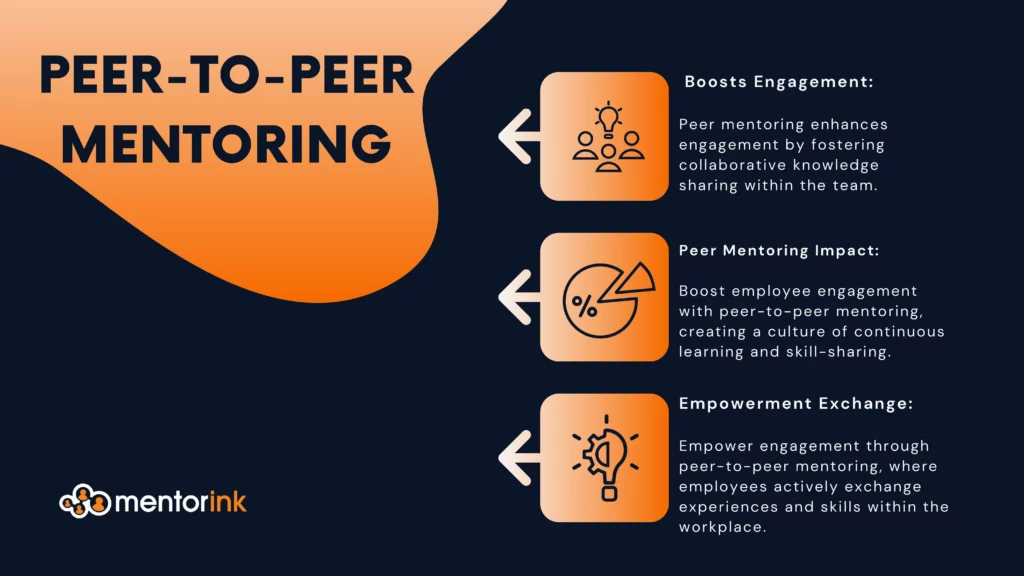
Peer-to-peer mentoring is revolutionizing the workplace. This approach not only enhances skill development but also significantly boosts employee engagement. By facilitating meaningful connections, mentorship programs nurture a culture of continuous learning and collaboration.
Retaining Employees through Peer to Peer Mentoring
In the modern workplace, retaining talent is as crucial as attracting it. Here’s how mentoring plays a key role:
- Increased Job Satisfaction: Employees engaged in peer mentorship programs often report higher job satisfaction, a key factor in retention.
- Career Development: Mentorship provides a clear pathway for professional growth, making employees feel valued and invested in.
- Building Loyalty: When employees are mentored, they develop a deeper connection to the organization, enhancing loyalty.
Statistics show a direct correlation between effective mentorship and reduced employee turnover. Companies with robust peer mentorship programs witness enhanced employee retention rates. To understand how this integrates into the larger picture, explore our tips mentors can consider when mentoring junior or entry-level employees
With Mentorship Program Transferring Valuable Knowledge and Information
Knowledge transfer is vital in any organization. Peer mentorship facilitates this seamlessly:
- Sharing Expertise: Experienced employees share invaluable insights and practical tips, enriching the learning curve for newer employees.
- Innovative Problem Solving: Collective wisdom leads to innovative solutions, driving organizational success.
- Cultural Transmission: Mentorship helps in imparting organizational culture and values, essential for maintaining consistency and unity.
By incorporating mentorship in the workplace, companies ensure a steady flow of valuable knowledge and information. This is critical for maintaining a competitive edge. For more on integrating new employees into this culture, see New Employee Onboarding program.
Peer to Peer Mentoring Creates Positive Work Environment
The impact of peer mentoring on workplace ambiance is profound:
- Fostering Collaboration: It encourages team members to work together, building a sense of community.
- Enhanced Communication: Regular interactions improve communication skills, essential for a harmonious workplace.
- Stress Reduction: Mentorship provides support and guidance, reducing work-related stress.
A positive work environment is not just about job satisfaction; it’s about creating a space where employees feel motivated and valued. Peer mentorship is a key contributor to this environment.
Conclusion
Peer-to-peer mentoring is more than a program; it’s a catalyst for creating a vibrant, engaged, and collaborative workplace. By embracing this approach, organizations can foster a culture of shared learning, improved communication, and enhanced job satisfaction, leading to a more productive and positive work environment.